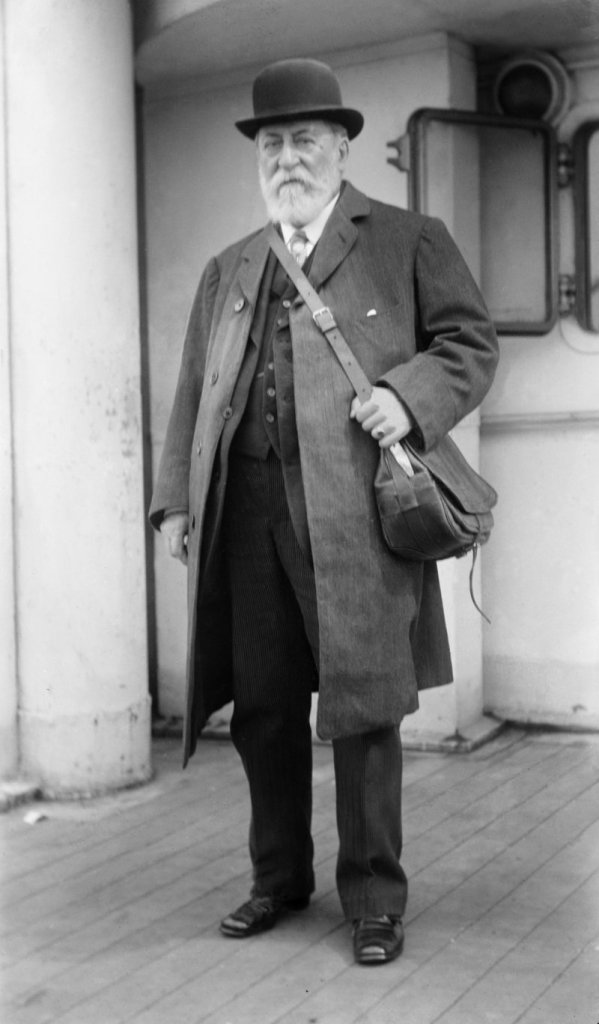The printed program for “A Night at the Movies,” the Feb. 23-24 Pops! concerts of the Portland Symphony Orchestra, was as fascinating as those ancient maps with a blank space for uncharted territory. What were they going to play, and by whom? (The program, selected by guest conductor Carl Topilow, has since appeared on the PSO website.)
I imagined the prolific John Williams — “E.T.,” “Schindler’s List,” “Star Wars,” etc. — would probably be featured. There would probably be something by John Corigliano, perhaps from “The Red Violin” or “The Ghosts of Versailles.”
There would likely be nothing from Alfred Newman (“The Greatest Story Ever Told” and many others) who won nine Academy Awards and is tied with Williams for the largest number of nominations, at 43.
I was right about Williams, who is heavily featured, and about Newman, who is not, but wrong about Corigliano. A composer I should have remembered is Harold Arlen, some of whose iconic music for “The Wizard of Oz” will be performed.
My ideal program would include some of Phillip Glass’ score for ‘The Hours,” four scenes from which were played here recently by the string quartet ETHEL.
I recall the orchestra performing some of Tan Dun’s music for “Crouching Tiger, Hidden Dragon” (2000), which would be interesting to hear again, now that the novelty has worn off.
The fascination of the blank PSO program led to the question of what, if any, first-rate classical music has emerged from film. Dmitri Shostakovich wrote an incredible 34 film scores — virtually none of which, except perhaps for “The Gadfly,” are heard at all today. Most of them were Soviet propaganda, but still
His compatriot, Sergei Prokofiev, was also drafted by the Soviet film industry for eight scores, but fared somewhat better musically. His music for “Lt. Kije” and “Alexander Nevsky” has survived — the first as a well-known orchestral suite, the second as a cantata and sections of his Fifth Symphony, which is said to have influenced Williams. So there is a film music tradition of sorts already.
Other well-known composers who tried their hand at film scores were Camille Saint-Saens for “The Assassination of the Duke of Guise” in 1908 and Mikhail Ippolitov-Ivanov for “Stenka Razin” in the same year.
Classical music has been used, in various good or bad transformations, for hundreds, if not thousands of movies and for even more silent film accompaniments. But original scores that graduate to the realm of art music are few and far between. Richard Rogers’ “Victory at Sea” perhaps, shorn of its jingoism?
As a matter of pure speculation, could the “specificity” of film itself make it difficult for the music to rise above a certain level? In opera, ballet and art music, the composer chooses the subject, if any.
In a motion picture, he or she is compelled to follow someone else’s script, and the coincidence of the artist’s vital interest and his assigned subject matter is unusual. Just a thought
In addition to six Williams selections, the program will include a suite of Hollywood music and selections from “Rocky,” “Psycho,” “007,” “Chicago,” “The Godfather,” “Lord of the Rings,” “Harry Potter,” “Pirates of the Caribbean” and others.
Christopher Hyde is a writer and musician who lives in Pownal. He can be reached at:
classbeat@netscape.net
Copy the Story Link
Send questions/comments to the editors.



Success. Please wait for the page to reload. If the page does not reload within 5 seconds, please refresh the page.
Enter your email and password to access comments.
Hi, to comment on stories you must . This profile is in addition to your subscription and website login.
Already have a commenting profile? .
Invalid username/password.
Please check your email to confirm and complete your registration.
Only subscribers are eligible to post comments. Please subscribe or login first for digital access. Here’s why.
Use the form below to reset your password. When you've submitted your account email, we will send an email with a reset code.